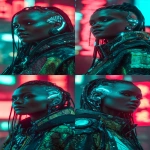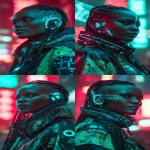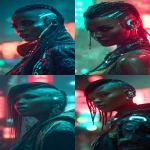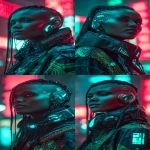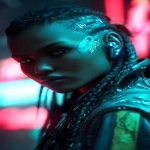Explore the Best AI Image Gallery

Beyond the Canvas: Exploring the Ethical Landscape of AI-Generated Media
The realm of creativity is undergoing a profound transformation, fueled by the rapid advancements in artificial intelligence (AI). AI-generated media, encompassing everything from text and images to music and video, is blurring the lines between human and machine creation, raising both exciting possibilities and complex ethical dilemmas.
A New Era for Creative Expression
AI-powered tools are empowering artists, designers, and creators with unprecedented capabilities. Imagine generating realistic images from a simple text prompt, composing original music in different genres, or crafting compelling narratives with the help of AI algorithms. These tools have the potential to democratize creative processes, making them more accessible to individuals without specialized training.
In industries like advertising and entertainment, AI-generated content can streamline workflows, personalize experiences, and even create entirely new forms of interactive storytelling. From designing virtual worlds to generating realistic special effects in films, the applications are vast and constantly evolving.
Navigating the Ethical Labyrinth
While the potential benefits are undeniable, the rise of AI-generated media also presents a minefield of ethical challenges that require careful consideration:
1. Authorship and Intellectual Property
Who owns the copyright to AI-generated content? Is it the creator who provided the input prompts, the developer of the AI algorithm, or the AI itself? Establishing clear legal frameworks for intellectual property rights in this new realm is crucial.
2. Bias and Discrimination
AI algorithms are trained on massive datasets, which can inadvertently contain biases that reflect societal prejudices. This can lead to AI-generated content perpetuating harmful stereotypes or discriminating against certain groups. Its essential to develop techniques for identifying and mitigating bias in training data.
3. Deepfakes and Misinformation
AIs ability to create hyperrealistic synthetic media opens the door to malicious applications, such as generating fake news videos or impersonating individuals. The potential for spreading misinformation and manipulating public opinion is a serious concern that requires robust safeguards.
4. Job Displacement and Economic Impact
As AI-powered tools become more sophisticated, there are concerns about the potential displacement of creative workers in certain sectors. Its important to consider the societal impact of these changes and explore strategies for reskilling and retraining workforces.
Shaping a Responsible Future
The ethical implications of AI-generated media demand ongoing dialogue and collaboration between technologists, artists, policymakers, and the general public. Establishing guidelines for responsible development and use, promoting transparency in AI systems, and fostering critical thinking about AI-generated content are essential steps toward navigating this uncharted territory.
Ultimately, the future of AI-generated media hinges on our collective ability to harness its immense potential while mitigating its risks. By embracing ethical considerations at every stage, we can ensure that AI empowers creativity and innovation for the benefit of humanity.



](https://images.ai-img.art/thumbnails/150/477a6a01318cd965f7f5f6ecc623f70e7e61f0004811369ce0977db761aecd57.webp)



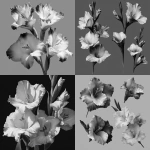







](https://images.ai-img.art/thumbnails/150/916a8f2aa9c13d051af4ab588a4921732f41e144150bdfc78853a28500cd717d.webp)
](https://images.ai-img.art/thumbnails/150/0791636c23fa42b3fd87dbe2541b7d3047cdb4d5fc0dab19f4efcfe1439963da.webp)
](https://images.ai-img.art/thumbnails/150/6b15b97ffd39aeb1b066fd2c8b33c1a2dd03a3966282ec6508e2c2c205c0360f.webp)




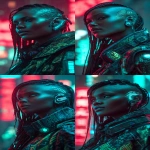
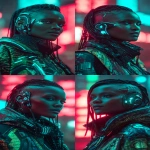
](https://images.ai-img.art/thumbnails/150/08baaaca8d12502f281846feba6b0cf89edf106843ff56346812f5eec39eeed1.webp)
](https://images.ai-img.art/thumbnails/150/ffdc3aeb085cdd89cb67916c26208f25e7c7b0250ad6e5877b48414760697a90.webp)

